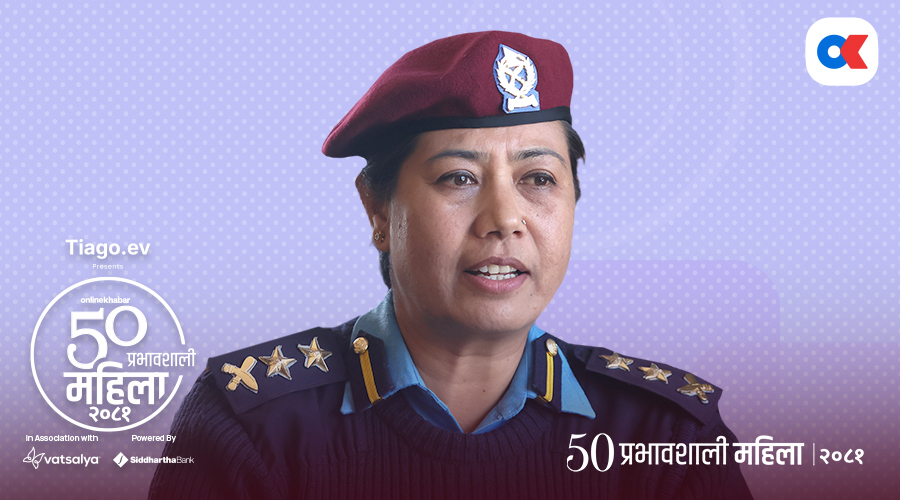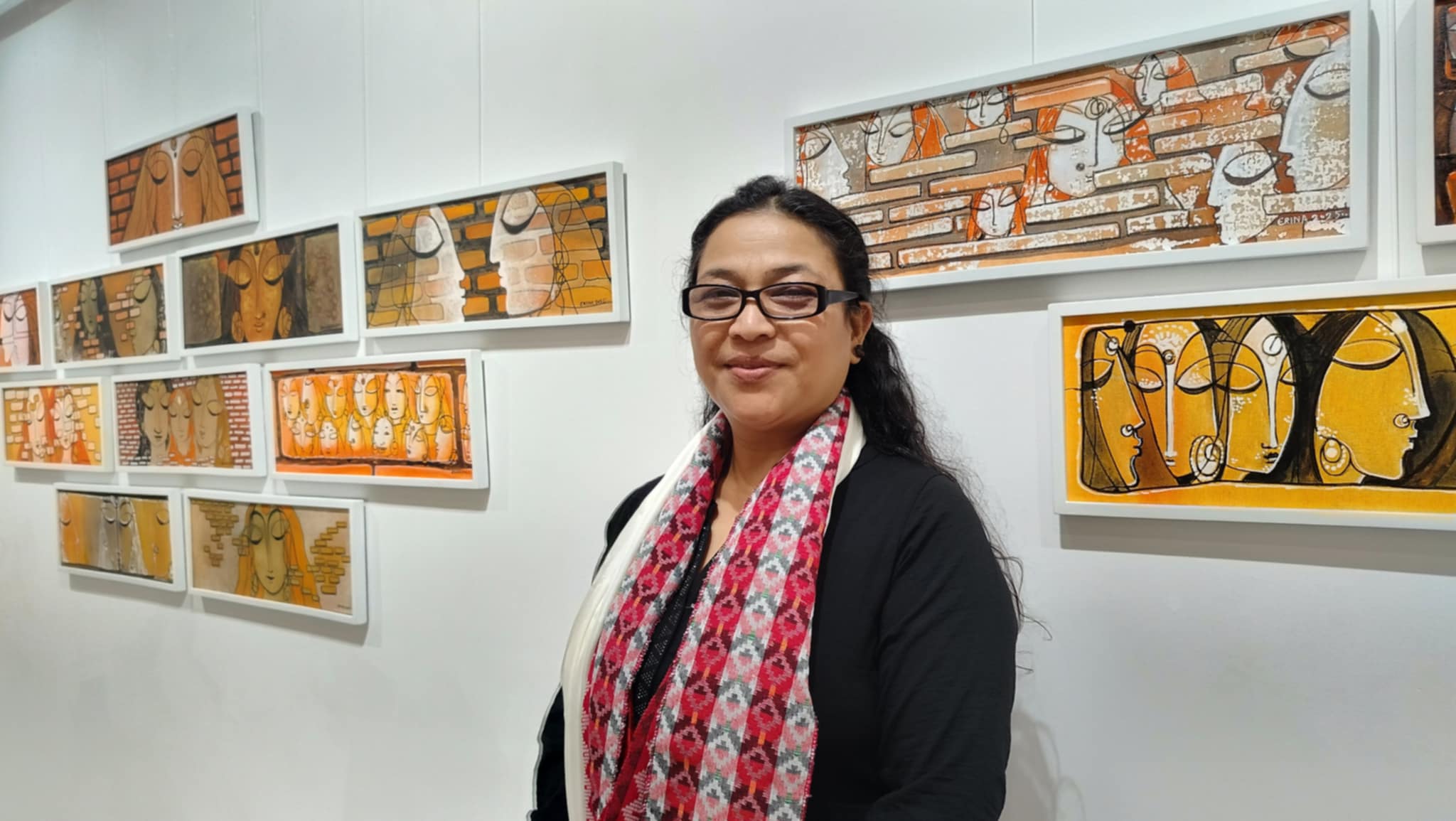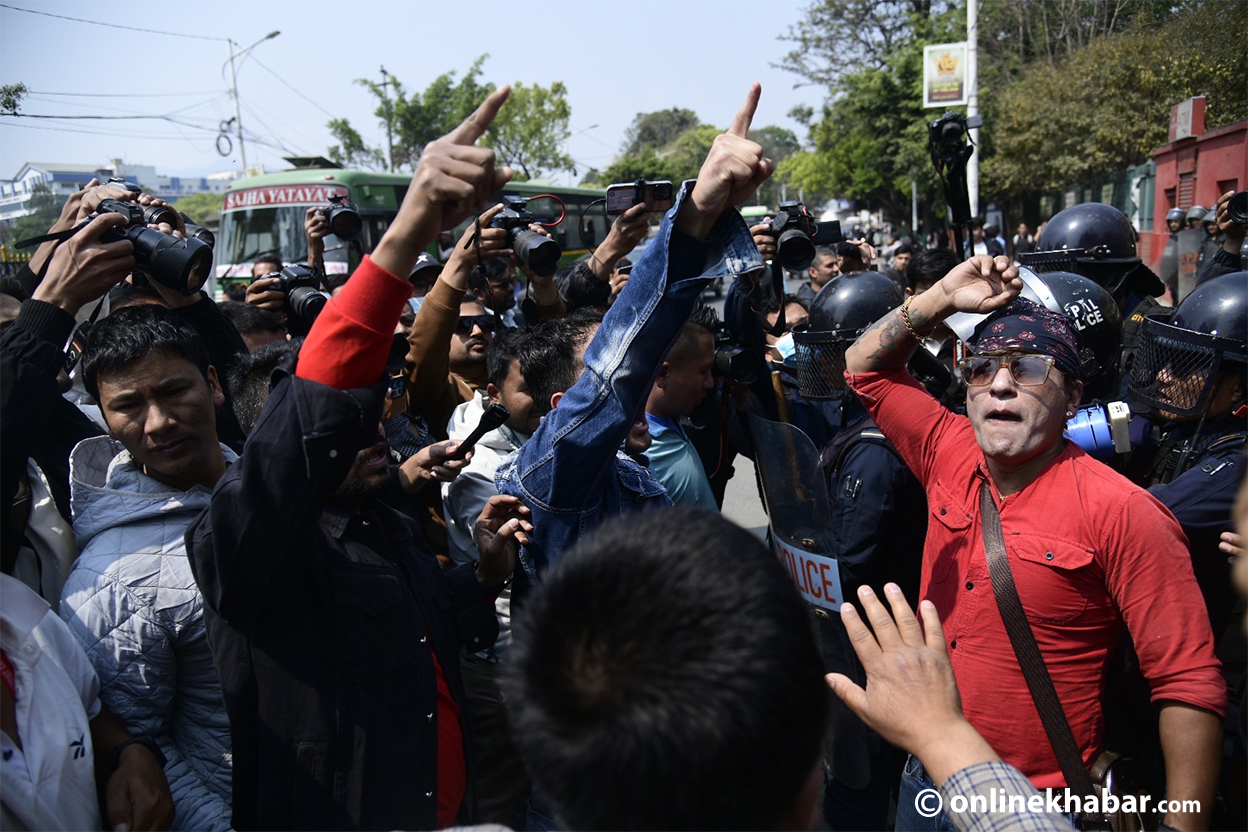
If you are eager to find short stories that are easy to read but captivating, with a strong social dimension embedded to it, then Sugam Gautam is the writer you should always look for.
I am not overtly into fiction stories especially those published by daily newspapers in Nepal and this is explained by the fact that I am always consumed by reading all the news and the op-ed articles, the latter my real passion.
Yet, once in a while, I do not mind to read the short fictions that the dailies publish and it happened I started really liked the ones written by Sugam Gautam.
I enjoyed the depth through which he writes but, considering my personal and professional interests, I am also very much attracted by his interest to tell stories from the perspectives of those who are disadvantaged and vulnerable, in short, the so called “underdogs”.
Sugam is interested in trying to understand others’ perspectives, especially those who are different from him and this is quite unique and is praiseworthy.
Considering how much the rich cultural and ethnic diversity of this country goes unappreciated or simply unnoticed, Sugam, through the characters of his short stories, makes a genuine attempts at exploring others ‘views, feelings and experiences.
One of the latest stories he wrote was about a young girl from a disadvantaged group who was forced to get into prostitution and found herself unable to extricate life from this profession that life’s circumstances forced on her.
Sugam Gautam is a young writer who is currently pursuing an MBA at Pokhara University.

And Pokhara, the place where he lives, is also the stage of all his stories. This also intrigues me because we often read authors and journalists who normally bring in a capital centric view. With Sugam, this is totally different.
He is a regular contributor to The Kathmandu Post and a weekly columnist for the Annapurna Express where he writes a column titled Tales by the lake.
How did you start? What was your trigger?
In retrospect, I was fond of reading right from my childhood. I would borrow books written for children from people with easy access to books. I also used to skim through Kantipur and Kopila, and the idea of running my fingers across the broadsheet always fascinated me. Muna, the children’s magazine, was also popular when I was a child. Though I had not started writing, seeing those kids write for Muna inspired me unknowingly.
When did you start writing?
Well, I think I started writing when I was in class nine. It was nothing serious; I would scribble my feelings on the last couple of pages of copies. When I was bored and had nothing to do, I would just flip the copy and start writing without thinking too much about sentence structures, grammar, and readability.
Why is it important for you to write? Could you live without writing?
For me, writing and reading are a way of life. I don’t necessarily write daily, but it means a great deal to me. I have started loving myself more, and it is all because of writing. Forty years down the line, I see myself writing in the quiet of the balcony, perhaps falling in love with my own choice of becoming a writer.
How much do you read?
Not a single day goes by without reading. Apart from reading newspapers and books, I try to read whatever pops up on my phone. This habit of reading on-screen has increased my exposure to words.
When do you normally write?
When I’m working on a short story, I try to finish the first draft in 2-3 days. Then it takes some days to revise and edit it. When I work on a story to submit to The Post, I try to finish it in a single sitting, and I don’t leave my desk until I’m done with the story.
What does writing give you?
As I said above, I have started loving myself more because of my writing. It fills me with joy when I realize that I’m capable of crafting a story.
How many stories have you written so far?
I don’t keep track of my stories, but I have written a lot—maybe over five dozen. Only short ones are published in newspapers.
Where do you get inspiration for them?
I walk a lot. And on my trips to parks and eateries, I observe people and their interactions. I don’t know why, but I can’t keep the characters I see to myself, so I end up jotting them on my laptop, which eventually turns into stories.
Your pieces always have a strong social dimension. Can you elaborate on how important it is for you to include aspects of day-to-day challenges experienced by the protagonists of your stories, normally historically marginalized groups of Nepal?
While thinking of characters, or even while documenting real characters in my stories, there are some social issues linked to them. Nepalese society is so diverse in terms of culture, and the distinction between people fuels a certain kind of tension, even conflicts. Family dynamics, societal pressure, and rifts in relationships are the main themes of my writing, and they come so naturally to me that I don’t have to think much.
A tough question: which is the story of yours you are most attached to?
There is this story of a rich widow who hires a servant from a remote setting to work in her house. Then there is tension between the two, with society looking down on a widow for choosing to hire a male servant instead of a female. A man with a family in his village, the servant can’t resist that there exists a bond between him and his mistress. I wrote this series in five parts, and all of them are published in The Kathmandu Post. I personally enjoy it because I think this story has a lot of possibilities.
What does it mean to write a story from a perspective not focused/centered on the capital city?
It doesn’t matter to me. I aim to write character-driven stories, and for me, emotions and psychology are the driving elements. Also, Pokhara has so much to offer, so I don’t have to think beyond Pokhara for a story setting. In the coming days too, I will try to build stories against the milieu of this cosmopolitan city, whose natural beauty has inspired me and my writings. My writing is inspired by my regular visits to Phewa Lake. When I feel bored sitting at home, I don’t think twice to roam the streets of Lakeside, where people from across the world come to relax. Then there are bookshops in Lakeside, where I interact with owners, readers, and foreigners. There are instances where I have befriended people in the shops and write about them later. Lakeside is so close to my heart that I don’t have to (don’t want to) think beyond it.
However, there is a great challenge for me–since most of my characters come from Pokhara, I must come up with unique presentations each time in the future to captivate my readers.
From your perspective, because without reading it is really hard to write, how would you address the challenge that young people are not reading anymore? What could be done to invert this worrisome pattern?
Reading is so underrated in our society. If we look at Western nations, people, regardless of their professions, immerse themselves in reading. I have seen on TV that a cricketer called Stuart Broad from England often sits with a book in the dressing room while waiting for his batting turn.
In contrast, Nepalese people are so ignorant about the benefits of reading that they avoid books once they get into a certain profession or start earning some money. Nothing could be done to curb this mentality.
As for young people, they can be encouraged from the school level itself by supplying them with diverse books. Recently, Motherland Secondary School in Pokhara organized a literature festival inside their school promises, trying to promote the reading culture. Their attempt is commendable, and such an initiative is always welcome. If those people running schools significantly invest in books and libraries, young kids might get into exploring the world beyond their text books.
Linked to the previous one, what could be done to motivate young people to write?
If you want to write, it must come from your heart. It’s not necessary that everyone should write; it’s not something that people should be forced into. But conducting writing workshops in different cities, colleges, and communities can influence someone with the zeal to write.
Can you share a bit about what you are writing at the moment?
I have been writing short stories for over five years. And I make sure to write at least 2-3 stories every month. Some stories I publish—and I keep others unpublished.
What about your long-term plans? Are you working on a book?
I have no such thing as a long-term plan. Since I’ve been working on short stories for a long time, I wish to publish a short story collection, and it’s a matter of time before the book hits the shelves. I can’t exactly say when, but it will come out at some point.
Who are your favorite authors, fiction-wise?
Well, I can’t name them all because it’s hard to remember. Of late, I have loved Fredrik Backman’s works, and his novel named A Man Called Ove is my recent favorite. I have always admired Jhumpa Lahiri, Samrat Upadhyay, and Jeffrey Archer. I just love their crisp sentences, the clarity in the voice, and smooth transitions between events. A Man Called Ove is a witty novel about a grumpy man, and this novel showcases what loving actually means, even in the permanent absence of someone. Jhumpa Lahiri’s detailed storytelling has always captivated me, and her ‘Namesake’ is my favorite book written by her. Similarly, I have read all the books written by Upadhyay. His rich characterization and his portrayal of Kathamndu made me believe that I could actually write about Pokhara. Archer’s short stories are something I’m not tired of revisiting. You just can’t dislike his witty stories.
Considering that with your short stories you cover social stories, have you ever ventured into the opinion writing “world”? If not, would you consider it in the future?
I often contribute opinion pieces to newspapers, but I don’t think I enjoy writing them as much as fictional stories. Since I am so much in love with fictional characters, I don’t see myself delivering opinion pieces in volume in the coming days.


















